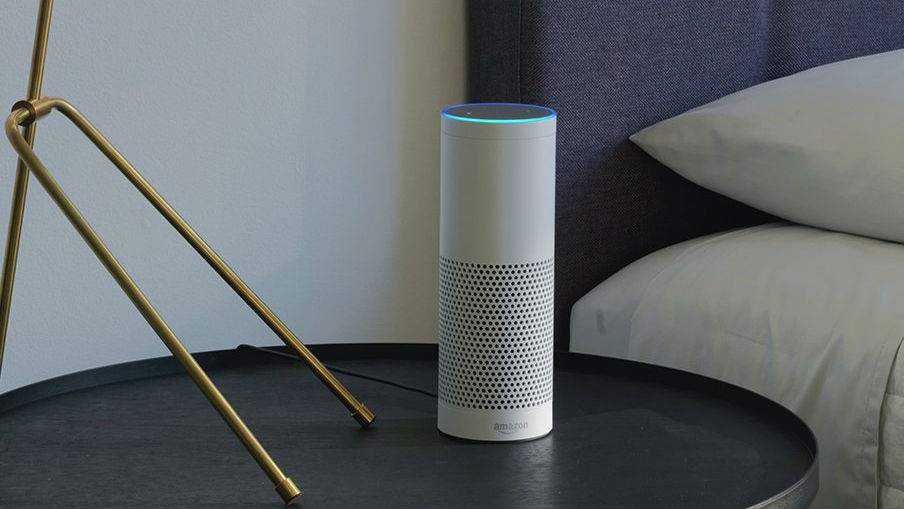Amazon issues fix for ‘creepy’ Alexa laugh
Users have heard the virtual assistant randomly giggling in silent rooms

A free daily email with the biggest news stories of the day – and the best features from TheWeek.com
You are now subscribed
Your newsletter sign-up was successful
Amazon has been forced to issue a fix for its Alexa virtual assistant, after a number of users reported hearing spontaneous “creepy” laughter from their smart speakers.
People with devices powered by the virtual assistant have been posting videos and comments on social media about such incidents over the past two weeks, with some saying the glitch dates back to at least December.
Responding to the reports, an Amazon spokesperson told Metro: “In rare circumstances, Alexa can mistakenly hear the phrase ‘Alexa, laugh’.”
The Week
Escape your echo chamber. Get the facts behind the news, plus analysis from multiple perspectives.

Sign up for The Week's Free Newsletters
From our morning news briefing to a weekly Good News Newsletter, get the best of The Week delivered directly to your inbox.
From our morning news briefing to a weekly Good News Newsletter, get the best of The Week delivered directly to your inbox.
To fix the problem, the retail giant will disable the “Alexa, laugh” command and use “Alexa, can you laugh?” in its place.
Alexa’s response will also change from just laughter to “Sure, I can laugh”.
But not everyone is satisfied with Amazon’s solution. The Inquirer notes that Alexa’s laughs are sometimes completely random and can occur in “silent” rooms.
There are also more widespread concerns about the system, which sends voice recordings “to the cloud for processing”, reports the BBC. This has led to fears about “eavesdropping”.
A free daily email with the biggest news stories of the day – and the best features from TheWeek.com
Although Alexa’s sporadic laughter could increase distrust of virtual assistants, some users saw the funny side, drawing comparisons with the Hal 9000 system in 2001: A Space Odyssey.
-
 Corruption: The spy sheikh and the president
Corruption: The spy sheikh and the presidentFeature Trump is at the center of another scandal
-
 Putin’s shadow war
Putin’s shadow warFeature The Kremlin is waging a campaign of sabotage and subversion against Ukraine’s allies in the West
-
 Media: Why did Bezos gut ‘The Washington Post’?
Media: Why did Bezos gut ‘The Washington Post’?Feature Possibilities include to curry favor with Trump or to try to end financial losses
-
 Claude Code: Anthropic’s wildly popular AI coding app
Claude Code: Anthropic’s wildly popular AI coding appThe Explainer Engineers and noncoders alike are helping the app go viral
-
 Will regulators put a stop to Grok’s deepfake porn images of real people?
Will regulators put a stop to Grok’s deepfake porn images of real people?Today’s Big Question Users command AI chatbot to undress pictures of women and children
-
 Most data centers are being built in the wrong climate
Most data centers are being built in the wrong climateThe explainer Data centers require substantial water and energy. But certain locations are more strained than others, mainly due to rising temperatures.
-
 The dark side of how kids are using AI
The dark side of how kids are using AIUnder the Radar Chatbots have become places where children ‘talk about violence, explore romantic or sexual roleplay, and seek advice when no adult is watching’
-
 Why 2025 was a pivotal year for AI
Why 2025 was a pivotal year for AITalking Point The ‘hype’ and ‘hopes’ around artificial intelligence are ‘like nothing the world has seen before’
-
 AI griefbots create a computerized afterlife
AI griefbots create a computerized afterlifeUnder the Radar Some say the machines help people mourn; others are skeptical
-
 The robot revolution
The robot revolutionFeature Advances in tech and AI are producing android machine workers. What will that mean for humans?
-
 Separating the real from the fake: tips for spotting AI slop
Separating the real from the fake: tips for spotting AI slopThe Week Recommends Advanced AI may have made slop videos harder to spot, but experts say it’s still possible to detect them